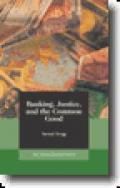


My latest for Acton Commentary. I’m also adding a couple of videos from Hotep and the Institute for Justice.
By Anthony Bradley
If necessity is the mother of invention, then there is nothing worse than quenching the entrepreneurial spirit of people seeking to improve their situation by imposing arbitrary third-party constraints. America’s unemployment problems linger because hustlers cannot hustle.
For many, “hustling” connotes business activity that is shady, or even illegal. But in the munity it mon to use the term to describe the entrepreneurial spirit that drives people to take risks to meet one’s needs and to provide legitimate services through creative enterprise in the marketplace. The latter view is the one taken by indie Hip-Hop mogul Hotep, who has created Hustler University as an effort to redeem hustling as a way to create space for economic empowerment. Clients include the NAACP, the Urban League, Clemson University, the National Education Association, Illinois Public Schools, and Morehouse College.
Hotep defines a “hustler” as “an enterprising person determined to succeed, [a] go-getter.” Participants in Hustler University are exposed to the idea that human beings were made to be innovative and creative and “to manifest our dreams into creation,” says Hotep. Among the Hustler’s 10 Commandments that Hotep aims to teach today’s entrepreneur are the aphorisms “your network is your networth,” “the early bird gets the worm,” and success is “where opportunity meets preparation.”
Hotep offers helpful direction, but for independent-minded hustlers to succeed and thereby benefit both themselves and munities, they need an environment that provides them opportunities to work freely. While there are many factors that keep entrepreneurial spirit dormant such as laziness, the absence of mentors, and skill deficiencies, one of the greatest obstacles is the mass of regulations generated by federal, state, and local governments.
The Institute for Justice recently released a report describing how government regulations prevent entrepreneurs from taking off. In Houston, for example, hustling a mobile food truck business is nearly impossible. For starters, a would-be mobile food entrepreneur must obtain a license from the City of Houston Department of Health and Human Services. Potential hustlers must submit, in-person, two sets of plans that satisfy a 28-point checklist. During the government truck inspection, the vendor must provide extensive documentation including an itinerary and route list. He is required to pay $560 in fees, which includes $200 for the installation of an electronic tracking device. Operators must also disclose their menu, including every ingredient used as well as its origin, and how each dish is prepared. Even worse, a form must be filled out for each ingredient. This is just a sampling of the regulations in one city. Similarly daunting tangles of red tape exist in every jurisdiction in America, preventing entrepreneurs from starting and maintaining small businesses.
It’s clear that this regulatory regime especially hurts small businesses, the primary source of new jobs. Mark Crain, William E. Simon Professor of Political Economy at Lafayette College, conducted a study several years ago describing the disproportional burden imposed by federal regulations on small business. Crain found that firms with fewer than 20 employees spend 45 percent more per plying with federal regulations than do larger firms. Small firms spend 67 percent more per employee on pliance than larger firms do, pared to the panies, more than 4 times as much ($3200 vs. $700) per employee ply with environmental regulations.
The black unemployment rate currently (January 2011) stands at 15.7 percent. Hispanics are a little better at 11.9, but both lag whites at 8 percent. The last thing we need are burdensome government regulations preventing hustlers from hustling. Whether intentionally job-killing or not, these types of government regulations dampen the entrepreneurial spirit of people who are trying to improve their situation and make contributions to the civic good by providing services that people need. Based on employment figures, these regulations arguably affect blacks and Hispanics disproportionately.
If America is really serious about addressing abysmal unemployment rates, federal, state, and local governments would do well to take the handcuffs off of hustlers and free them from the regulations that keep them from creating wealth. In other words, get government out of the way and let the hustlers hustle!









